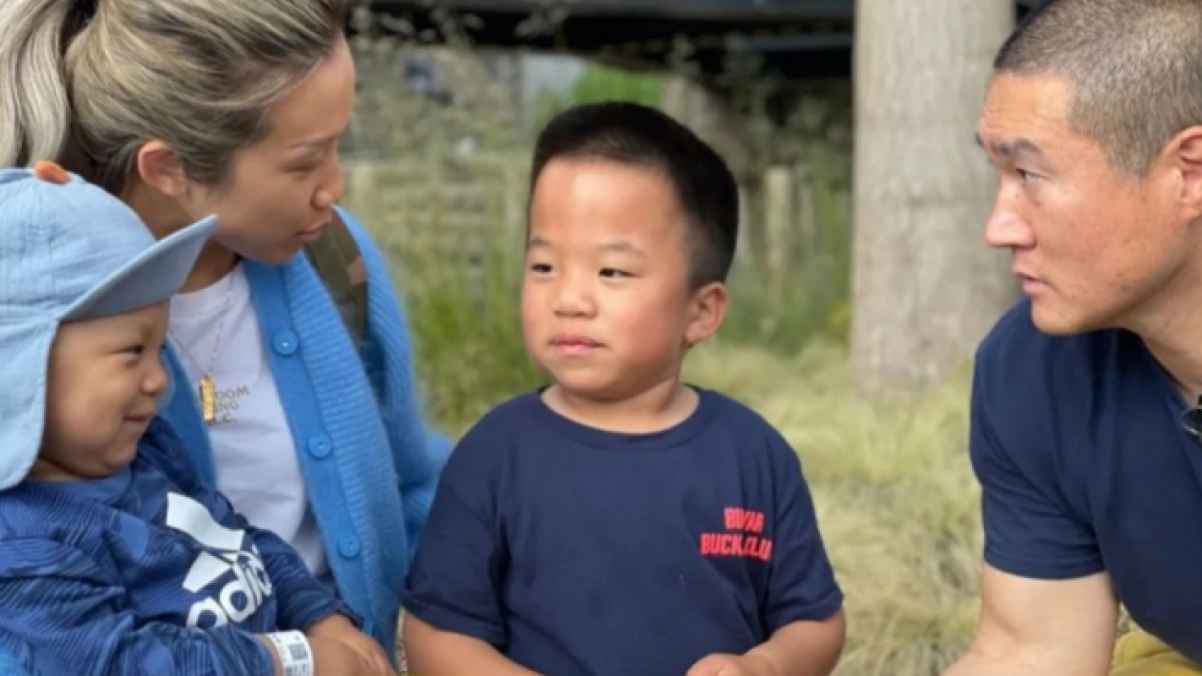First child to recover from a rare disease thanks to a new treatment

- Oliver Chu used to suffer from a rare disease called Hunter syndrome (MPSII)
- Chu received an innovative gene therapy and has shown remarkable improvement in his health and development
A three-year-old boy has amazed doctors with his progress after becoming the first person in the world to receive groundbreaking gene therapy at the Royal Manchester Children’s Hospital.
Oliver Chu suffers from a rare inherited condition called Hunter syndrome (MPSII), which causes progressive damage to the body and brain and mostly affects boys.
In severe cases, most patients die before the age of 20 due to a faulty gene that prevents the production of an essential enzyme for cell health. Doctors have described its effects as similar to childhood dementia.
In a world-first step, a medical team attempted gene therapy to repair Chu’s cells.
His progress has exceeded the expectations of doctors and his family from California.
Professor Simon Jones, one of the trial leaders, said: “I’ve waited 20 years to see a boy like Oliver improving like this, and it’s incredibly exciting.”
A year after starting the gene therapy, Chu appears to be developing normally, and there is now hope that his older brother Skyler, who also has the condition, may receive the treatment as well.
His mother, Jingru, expressed her joy: “Every time we talk about it, I feel like crying because it’s just so amazing.”
The first stage of treatment involved stem cell extraction from Chu in December 2024 at Manchester, and the cells were carefully sent to a laboratory at Great Ormond Street Hospital in London.
The cells then work to produce a missing enzyme (IDS), essential for breaking down large sugar molecules that accumulate in tissues and organs over time. The missing gene is inserted into an inactivated virus, which can repair the cells without causing disease.
Dr. Karen Buckland from the Cell and Gene Therapy Service said: “We use the virus machinery to insert a working copy of the gene into the stem cells.
When returned to Oliver, they should repopulate his bone marrow and start producing new white blood cells, each capable of producing the missing enzyme.” To ensure the enzyme reaches the brain, the gene is modified to cross the blood-brain barrier more efficiently.
In February 2025, Chu received an infusion of the therapeutic cells, which took just 10 minutes, followed by a second identical infusion an hour later.
After completing the therapy, he returned home to California with his family and came back in May for critical follow-up tests.
His father, Ricky, said: “He’s improving greatly in speech and movement, and in just three months, he’s become much more mature.”
Chu was also able to stop weekly enzyme infusions.
Oliver now speaks more, interacts with other children, and travels to Manchester every three months for follow-up assessments.
In August, further checks confirmed the gene therapy is working effectively, and the child continues to thrive nine months after treatment.
Professor Jones explained: “Before the transplant, Oliver wasn’t producing any enzyme, and now he’s producing hundreds of times the normal amount. Most importantly, we see him improving, learning new words and skills, and moving more easily.”
However, he cautioned: “We need to be careful and not get carried away with excitement, but things are as good as they could be at this point.”
The trial includes five children from the US, Europe, and Australia.
